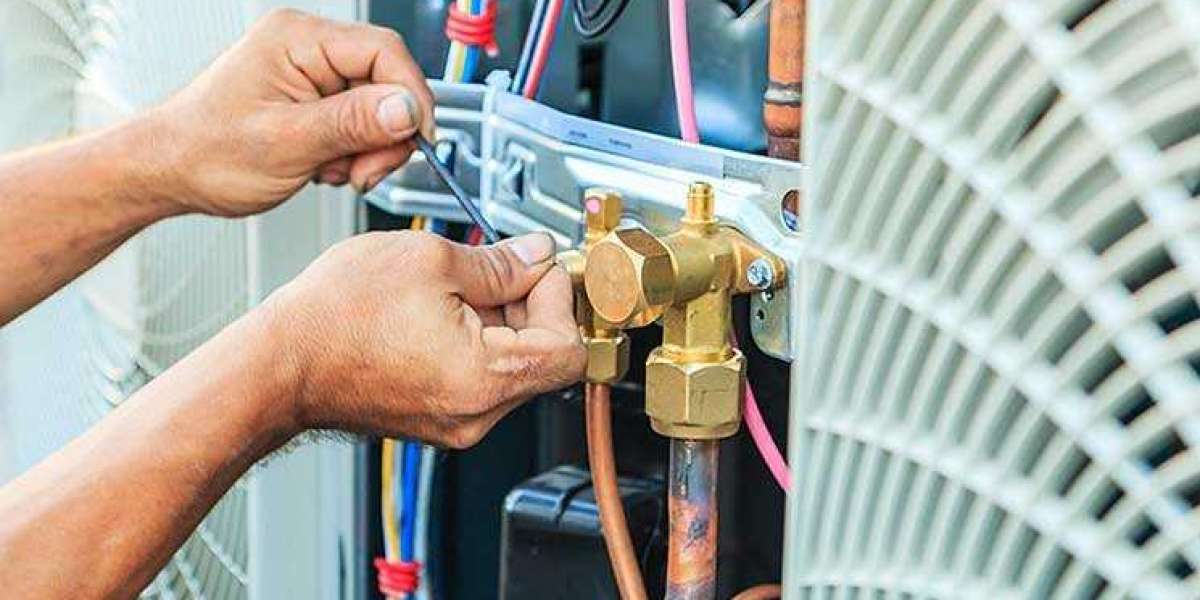When your heating system malfunctions, it can disrupt your comfort and lead to higher energy bills. Whether you have a furnace, boiler, or heat pump, understanding how to Repair heating issues effectively is crucial. In this guide, we’ll cover common heating problems, troubleshooting tips, and when to call a professional for repairs.
Why Heating Repair is Essential
A properly functioning heating system ensures your home stays warm and energy-efficient. Here are some key reasons why heating repair is necessary:
1. Prevents Further Damage
Ignoring minor heating issues can lead to major system failures and costly replacements. Timely repairs keep your system in optimal condition.
2. Reduces Energy Costs
A malfunctioning heating system consumes more energy, increasing utility bills. Fixing issues improves efficiency and saves money.
3. Enhances Safety
Faulty heating systems can cause gas leaks, carbon monoxide poisoning, and electrical hazards. Regular maintenance and repairs help mitigate these risks.
4. Improves Indoor Comfort
Efficient heating ensures consistent warmth and enhances indoor air quality by preventing mold and dust buildup.
Common Heating Problems and Their Solutions
Understanding common heating issues helps in diagnosing and resolving problems quickly.
1. No Heat or Insufficient Heating
Possible Causes:
Thermostat set too low or malfunctioning
Clogged air filters restricting airflow
Pilot light or ignition failure
Issues with the heating element
Solution:
Adjust the thermostat and replace batteries if needed
Clean or replace air filters
Inspect the pilot light or ignition system
Call a technician for system component repairs
2. Strange Noises from the System
Possible Causes:
Loose or damaged internal components
Worn-out belts in forced-air systems
Air trapped in boiler systems
Solution:
Tighten loose parts and lubricate moving components
Replace worn-out belts
Bleed the boiler to release trapped air
3. Frequent Cycling On and Off
Possible Causes:
Dirty air filters affecting airflow
Faulty thermostat or incorrect placement
Overheating due to a malfunctioning component
Solution:
Clean or replace filters regularly
Relocate the thermostat away from heat sources
Schedule a professional inspection
4. High Energy Bills
Possible Causes:
System working harder due to dirt buildup
Air leaks in ductwork
Aging or inefficient heating unit
Solution:
Clean components and replace filters
Seal ductwork leaks
Consider upgrading to an energy-efficient heating system
5. Pilot Light or Ignition Problems
Possible Causes:
Dirty or faulty thermocouple
Gas supply issues
Electrical control failures
Solution:
Clean or replace the thermocouple
Ensure the gas valve is open
Consult a professional for electrical issues
DIY Heating Repair vs. Professional Help
Some heating issues can be fixed at home, while others require professional intervention.
When to Try DIY Repairs
Replacing air filters
Adjusting thermostat settings
Checking circuit breakers and resetting them
Cleaning vents and registers for proper airflow
When to Call a Professional
Persistent system failures or recurring issues
Gas leaks or unusual smells (sulfur or burning odor)
Electrical issues like tripping breakers or flickering lights
Major component malfunctions like a failed blower motor
Types of Professional Heating Repairs
1. Furnace Repairs
Ignition and pilot light fixes
Blower motor and fan replacement
Heat exchanger inspection and repairs
2. Boiler Repairs
Leaking pipes and pressure issues
Radiator problems
Pump and valve replacements
3. Heat Pump Repairs
Refrigerant level checks
Compressor and fan repairs
Thermostat calibration
4. Ductwork Repairs
Sealing leaks to improve efficiency
Cleaning to prevent airflow blockages
Insulation upgrades
How to Choose the Best Heating Repair Service
Finding a reliable heating repair service is crucial for quality repairs and long-term efficiency.
1. Check Certifications and Licensing
Ensure the company is certified by organizations like NATE (North American Technician Excellence) or EPA (Environmental Protection Agency).
2. Read Customer Reviews
Look for customer feedback on Google, Yelp, or Better Business Bureau (BBB) to gauge service quality.
3. Compare Pricing and Warranties
Get multiple quotes and check if the company offers warranties on parts and labor.
4. Look for 24/7 Emergency Services
Choose a provider that offers emergency repairs, especially in extreme weather conditions.
Heating System Maintenance Tips to Avoid Repairs
Regular maintenance helps prevent costly repairs and prolongs the life of your heating system.
1. Change Air Filters Regularly
Replace filters every 1-3 months to maintain efficiency and airflow.
2. Schedule Annual Tune-Ups
Professional inspections help catch minor issues before they turn into major problems.
3. Keep Vents and Ducts Clean
Dust and debris can clog ducts, reducing efficiency and causing overheating.
4. Check Thermostat Settings
Ensure your thermostat is working correctly to avoid unnecessary strain on the system.
5. Inspect for Leaks and Blockages
Check for water leaks around boilers and ensure vents are not blocked by furniture or debris.
Signs You Need Immediate Heating Repair
No heat or weak airflow
Unusual burning smells or gas odors
Loud banging or rattling noises
High energy bills without explanation
Frequent system cycling or shutdowns
If you notice any of these signs, contact a heating repair professional immediately.
Timely Furnace cleaning services are essential for maintaining a comfortable and efficient home. While some minor fixes can be done independently, major heating issues require professional expertise. Regular maintenance helps prevent unexpected breakdowns and prolongs your system’s lifespan. If you need heating repair, look for a licensed and reputable HVAC technician to ensure quality service and long-term reliability. Don’t wait until your system fails—schedule your heating system inspection today to keep your home warm and energy-efficient all year round!








